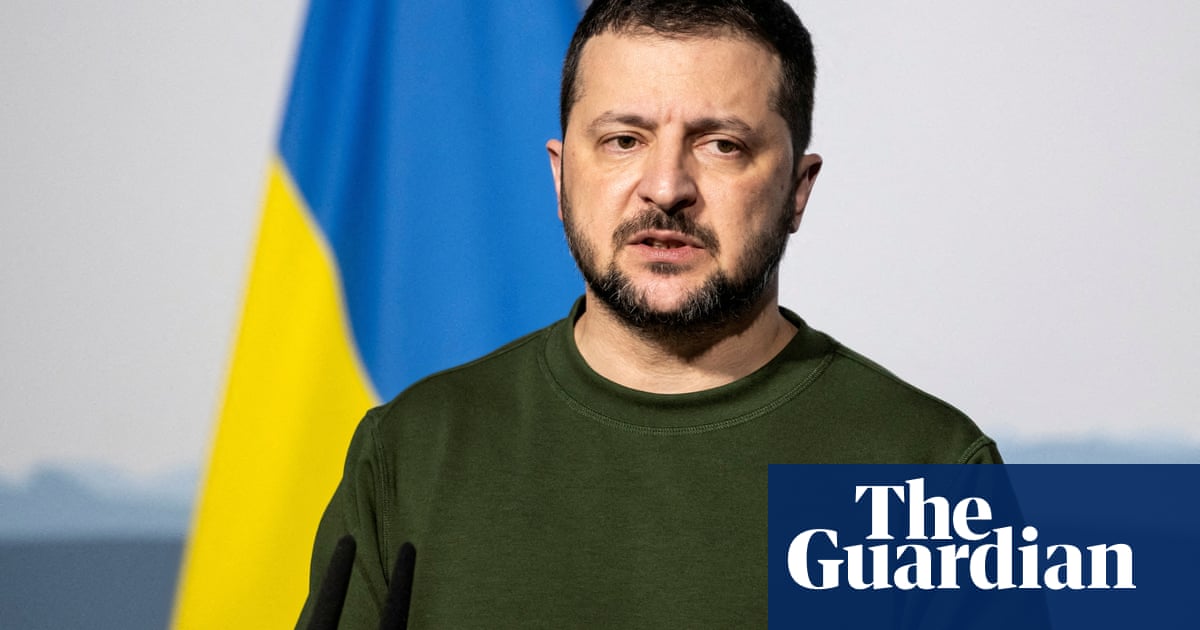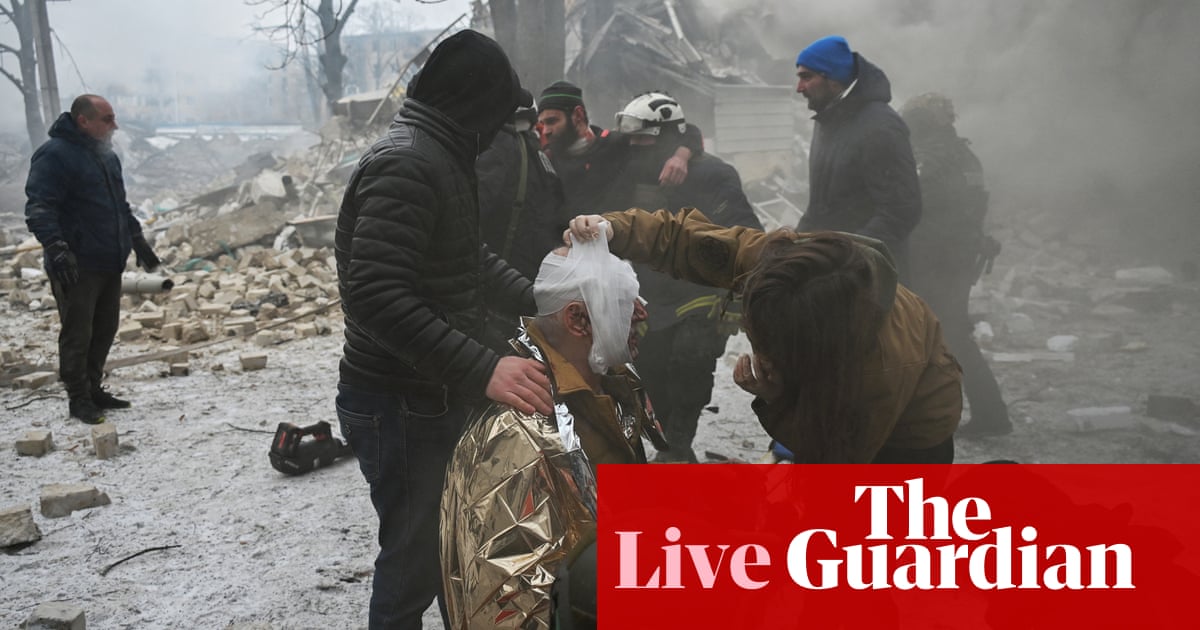
Volodymyr Zelenskiy arrived in Switzerland on Friday ahead of a two-day Ukraine peace summit, with dozens of world leaders set to attend, but without Russia. The Ukrainian leader, who hopes to marshal international support for his plan to end the war, said on X (formerly Twitter): “There will be two days of active work with countries from all parts of the world, with different nations that are nonetheless united by a common goal of bringing a just and lasting peace in Ukraine closer.” Zelensky said talks would focus on nuclear safety, food security and the return of prisoners of war and Ukrainian children taken to Russian-controlled territory.
The US vice-president, Kamala Harris, the French president, Emmanuel Macron, and the leaders of Germany, Italy, Britain, Canada and Japan are among those set to attend the Swiss summit in Lucerne. Despite months of Ukrainian and Swiss lobbying, some others will not be there, most notably China. The gathering comes after the Russian president, Vladimir Putin, said Moscow would only enter peace talks after Ukraine pulls its troops out of the east and south of the country – a plan which Zelensky dismissed.
Group of Seven leaders have targeted China’s role in providing assistance to Russia in its war against Ukraine, and its “harmful overcapacity”, despite misgivings from Germany. On the second day of the G7 summit in Puglia, Italy, the US drove home a 36-page communique that condemned Chinese subsidies for products such as solar panels and electric cars which it said were leading to “global spillovers, market distortions and harmful overcapacity”. US officials identified China as a major supplier of dual-use materials – those with civilian and military applications – to Russia that they said Beijing knew were being used against Ukraine.
Vladimir Putin has demanded that Kyiv cede more land, withdraw troops deeper inside its own country and drop its Nato bid in order for him to end his war in Ukraine. Issuing his fresh ceasefire demands while speaking to diplomats at the Russian foreign ministry as leaders convened for the Ukraine peace summit, the Russian president publicly updated his terms for ending the war in Ukraine for the first time since he launched a full-scale invasion in February 2022. Kyiv dismissed Putin’s conditions as “absurd”, with Volodymyr Zelenskiy saying the offer could not be trusted and Putin would not stop his military offensive even if his ceasefire demands were met.
Also on Friday, Putin said on television that almost 700,000 Russians were fighting in Ukraine. In December he gave the figure of 617,000 taking part in combat operations, saying that of those, 244,000 had been mobilised.
On the ground in Ukraine, a Russian airstrike killed one person and injured at least four in the northern Sumy region on Friday, the military administration there said. The strike hit the town of Shostka, about 45km (28 miles) from the border with Russia, it said on Telegram, giving no details about damage. The strike came as Kyiv and Moscow staged dozens of drone and missile attacks overnight on Thursday and during Friday.
Ukrainian attacks on southern Russia’s Belgorod region killed six people on Friday, officials said. Four bodies were pulled from the rubble of a multi-floor apartment building hit by Ukrainian shelling in the border town of Shebekino, Russia’s emergencies ministry said, adding after midnight that 50% of the rubble had been cleared. A Ukrainian drone struck a car in a village near Shebekino, killing the driver, said the regional governor, Vyacheslav Gladkov. He said a woman was killed in her home when it was struck by rocket fire in the village of Oktyabrsky, farther west.
Russia launched 17 missiles and nearly 500 drones on Friday, Ukraine’s general staff said. Drone attacks killed a 54-year-old man in the southern Kherson region and wounded a 17-year-old girl in the eastern city of Dnipro, regional authorities said. Three people were wounded in a drone attack in the eastern Sumy region and several homes damaged in the neighbouring Kharkiv region.
Russia said it had downed 87 Ukrainian drones, 70 of which had targeted the southern Rostov region that houses the headquarters of its military operation against Ukraine. The defence ministry said 70 drones were downed over Rostov, six each over Kursk and Voronezh, two each over Volgograd and the Belgorod region bordering Ukraine, and one over the annexed Crimean peninsula. Attacks sparked power cuts in several areas of the Rostov region, its governor, Vasily Golubev, said. In the Voronezh region, which borders Ukraine, a fuel reservoir was slightly damaged by falling debris, said its governor, Alexander Gusev.
Russian forces are concentrating their firepower on the Pokrovsk front in the eastern Donetsk region, where overnight strikes wounded at least six civilians, according to Ukraine. “The situation is difficult, but controlled by the defence forces,” the Ukrainian military said in its evening briefing on Friday. “Our soldiers are making efforts to prevent the enemy from advancing deep into Ukrainian territory.”
In the town of Selydove, near the frontline in Donetsk, officials said six people were wounded by Russian aerial attacks overnight to Friday. Agence France-Presse journalists on the scene hours after the strikes saw the interior of a supermarket reduced to heaps of metal and glass under a partially gutted roof. The force of an explosion, which tore open a neighbouring building, also blew out the windows of residential buildings across the street.
Ambassadors from the European Union’s 27 member states on Friday “agreed in principle” on beginning accession negotiations with Ukraine and Moldova on 25 June, the Belgian presidency of the EU’s Council said. EU ministers are due to formally approve the decision during a meeting on 21 June. But opposition from Hungary, the friendliest country to Russia in the EU, threatens to derail the move, which requires the unanimous support of member states.












